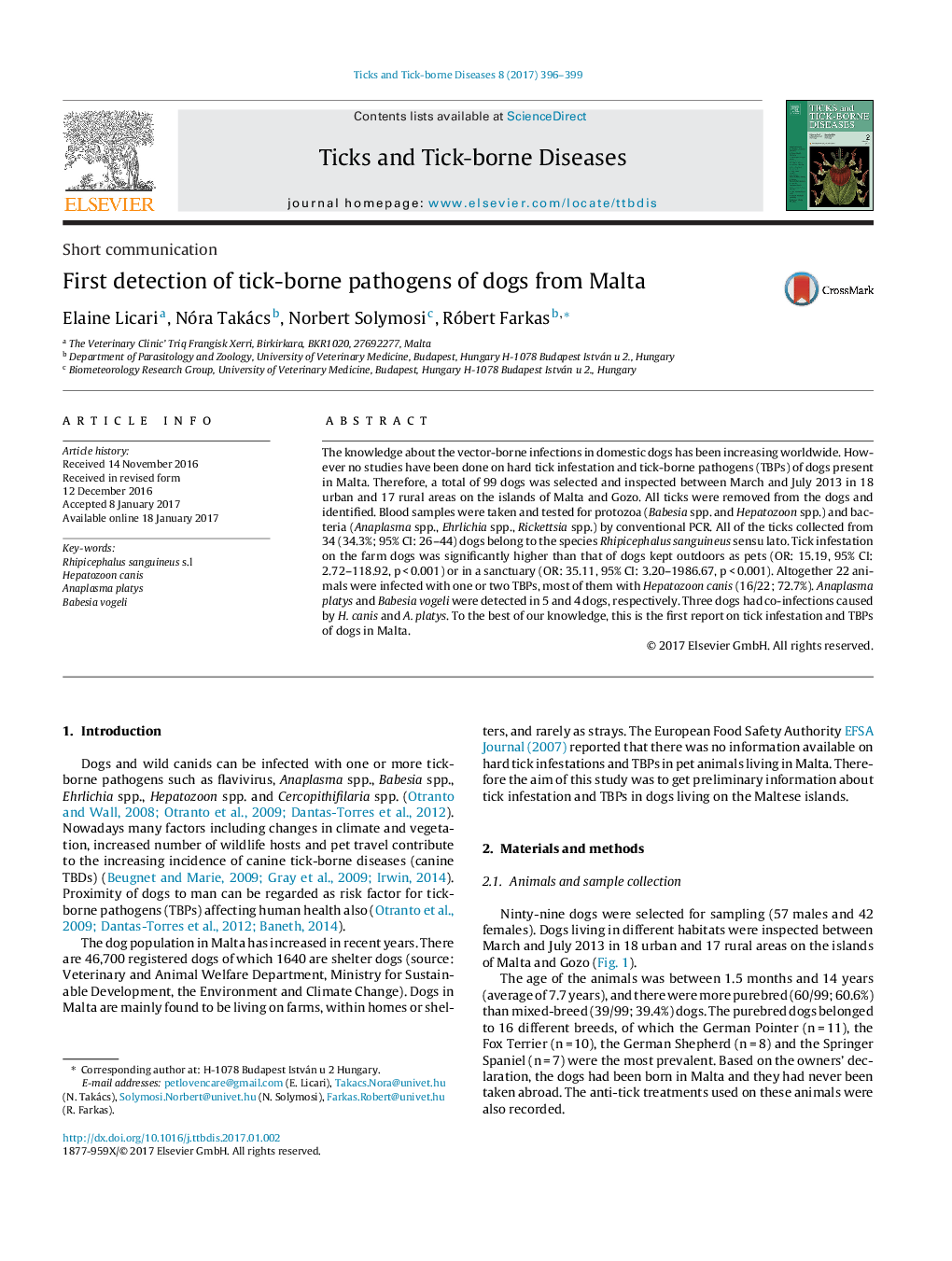| Article ID | Journal | Published Year | Pages | File Type |
|---|---|---|---|---|
| 5546358 | Ticks and Tick-borne Diseases | 2017 | 4 Pages |
Abstract
The knowledge about the vector-borne infections in domestic dogs has been increasing worldwide. However no studies have been done on hard tick infestation and tick-borne pathogens (TBPs) of dogs present in Malta. Therefore, a total of 99 dogs was selected and inspected between March and July 2013 in 18 urban and 17 rural areas on the islands of Malta and Gozo. All ticks were removed from the dogs and identified. Blood samples were taken and tested for protozoa (Babesia spp. and Hepatozoon spp.) and bacteria (Anaplasma spp., Ehrlichia spp., Rickettsia spp.) by conventional PCR. All of the ticks collected from 34 (34.3%; 95% CI: 26-44) dogs belong to the species Rhipicephalus sanguineus sensu lato. Tick infestation on the farm dogs was significantly higher than that of dogs kept outdoors as pets (OR: 15.19, 95% CI: 2.72-118.92, p < 0.001) or in a sanctuary (OR: 35.11, 95% CI: 3.20-1986.67, p < 0.001). Altogether 22 animals were infected with one or two TBPs, most of them with Hepatozoon canis (16/22; 72.7%). Anaplasma platys and Babesia vogeli were detected in 5 and 4 dogs, respectively. Three dogs had co-infections caused by H. canis and A. platys. To the best of our knowledge, this is the first report on tick infestation and TBPs of dogs in Malta.
Related Topics
Life Sciences
Agricultural and Biological Sciences
Animal Science and Zoology
Authors
Elaine Licari, Nóra Takács, Norbert Solymosi, Róbert Farkas,
